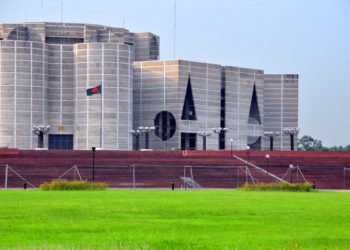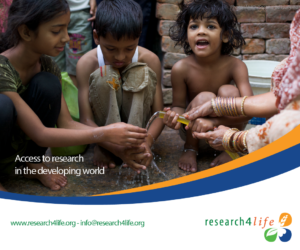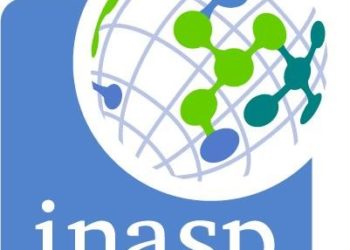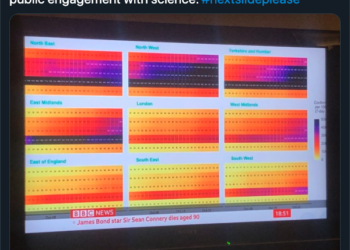Featuring sessions on research integrity, algorithmic promotion of misinformation, and the latest challenges for information-intensive industries, the 83rd assemblage of the Association for Information Science & Technology (ASIS&T) highlighted the theoretical and scholarly work underway to address topics of concern to scholarly publishers and service providers.
As we have recently seen from publishers and information organizations like ALPSP, the global chapters of ASIS&T are actively engaged in the United Nations’ sustainable development goals (SDGs). The keynote spotlighted blockchain solutions to foster creativity and innovation in solving food insecurity, and the closing plenary featured regional chairs reporting their progress on initiatives, such as tracking the diffusion of pandemic-related information around the world and increasing health information literacy. In between, the various tracks of the week-long conference were organized around select themes of the SDGs.

Not surprisingly, many sessions reported on research into informational aspects of the many crises (COVID-19, racial injustice, environmental emergencies, etc.) that are troubling communities around the world this year. The flow of information (and mis-information campaigns) has been an important topic of recent studies, examining both the algorithmic and societal causes. Theorists debated the ways in which information behaves like a vaccine or a virus, how websites earn trust with readers, and how “global health crises are also information crises.” Studies like these punctuate the ways in which those of us working with information every day have powers of influence we may not always recognize or wield with mindfulness.
Throughout this year’s ASIS&T conference, I was pleased to hear a few familiar noises that resonate with publishing — in particular from proponents of standards-based initiatives, like using the CRediT taxonomy to measure authorship across disciplines and leveraging the FAIR framework to promote data management and research integrity. Of relevance to publishers is the progress being made to bring computational solutions to discovery of new, interdisciplinary fields of study and grant funding opportunities. I was sorry to not hear perspectives from content and service providers from our industry — unless recruiting authors or in sales mode, publisher voices were largely absent from this world of research and development in the information sciences.
Publishers perspectives would have been welcome in a US-based panel of academic researchers and instructors who discussed pandemic-era trends in open access and open educational resources. In many cases, the panel’s experiences highlighted the ways in which the scientific process can collide with an urgency to publish reliable, accurate medical findings. When asked what role publishers might play in sustainability goals, such as equity of access to knowledge, this panel offered Research4Life as a good example of an opportunity for collaboration. However, I would thought there would be a great deal more to address in the collaborative opportunities for publishers, librarians, and scholars. This felt like a missed opportunity to cross-pollinate ideas and engender greater collaboration with information and library researchers.
An extensive grant-funded study into “containers, genres and formats” was especially relevant for publishers, demonstrating the ways in which users at different levels of education and experience interpret academic materials. Drawing a distinction between types of content, or genres, and the containers and formats in which they are delivered, this study underscores the ways in which our publications are modes of communication in themselves. The containers — whether journal or textbook or podcast — express important indicators and set expectations for our readers. The taxonomy proposed by this group is the sort of evidence-based framework that publishers should be embracing.
Publishers would have felt at home in the panel that addressed a range of challenges for information-intensive industries, highlighting investigations by Snopes.com into instances of misinformation outbreaks where FaceBook filters have failed, anti-bias research to inform algorithm development at Spotify, and using how information science research is applied in OCLC’s product team to respond to crises in libraries and changing community needs. Publishers would be well served in establishing an operational understanding of how our readers assess truth in scholarship and leveraging this research to improve how we serve the research community.
In many instances, ASIS&T content is heavily focused on practical improvements in information and library professions, so there was plenty to buoy the optimists in the virtual room — including case studies on what works for health information literacy and insights into how we might train human-centered data scientists. Our very own Lisa Janicke Hinchliffe presented her work with colleagues to develop a framework for successful collaborations between information organizations, like libraries, and community organizations serving needs from disability support to immigration centers. Other solutions-oriented studies were focused on methods for successful social media interventions within at-risk communities, new trends in YouTube counseling programs, and addressing poor usability of health information, like prescription labels.
Greater engagement by providers of scholarly communications products and services would offer publishers and technologists a direct line of data-driven insight into the basic tools of our trade: engaging in scholarship as trustworthy stewards of research information, collaboration, and knowledge dissemination. Conversely, ASIS&T seems the ideal venue to break out of our industry bubble and champion the initiatives we care about with like-minded academics — such as open-access innovations, reworking modes of authentication to even the playing field, and otherwise reconfiguring the mechanisms of privilege that keep high-quality education from accessible to all learners.
The inspiring closely plenary for ASIS&T 2020 highlighted the opportunities available to information professionals to contribute to collective action and join in efforts to end the suffering and imbalances around the globe, as articulated in the UN SDGs. Indeed, as we were reminded at the ASIS&T annual meeting, innovators and experts like those in scholarly communications possess “the intellectual and social capital” to achieve these ambitious goals and help solve the world’s most pressing problems. Now, let’s get to work!



